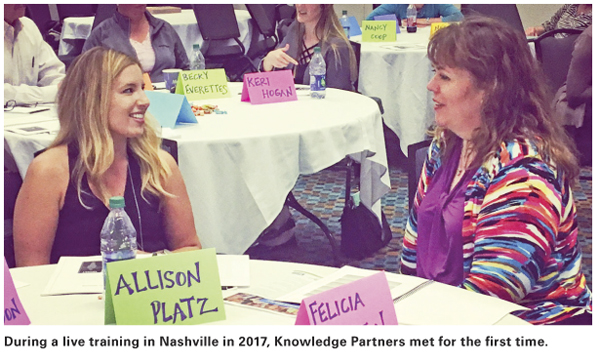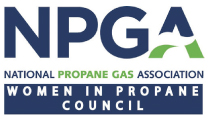Friday, February 23, 2018
By Liz Selzer… Mentoring is a powerful tool for developing your staff and ultimately your organization. This is especially true when jobs are tight and people are being asked to take on more tasks and step into more roles than ever. Organizations have seen dramatic improvements in their workforce, such as increased employee engagement, better organizational communication, and the growth in appreciation of people’s strengths that leads to higher organizational performance. 
Mentoring does not need to be a complicated process or program. In fact, within certain parameters and given good preparation, it is one of the most basic, organic forms of training available. Through the encouragement mentoring provides, your staff members are more engaged, they see that their efforts matter, and they are happy to be moving forward professionally. They allow their passion for their work to surface in powerful ways, opening up opportunities for creative solutions and innovation.
Mentoring can work in any context where people work together. It can be done across distance, with all generations, genders, and global cultures, and with all skill levels. Mentoring literally creates an exponential knowledge expansion and limitless skill development opportunities, expanding your organization’s reach in critical ways.
The Benefits of Mentoring
In a successful mentoring program, it is important for everyone to be drawn in and buy in whole-heartedly. To do this, everyone involved should understand and believe in the benefits of participating. Many of these benefits are listed below.
For the mentor: Mentoring reinforces accomplishments, expands sphere of influence, enhances communication and people skills, provides a way to reciprocate or “give back,” allows the opportunity to share legacy, learning, and wisdom that you have accrued in your life experiences so far, allows for focused investment in the life of another, and increases the personal satisfaction of making a difference.
For the ‘mentee’: Mentoring expands sphere of influence, enhances communication and decision-making skills, improves time management and career development, reduces burnout by helping people find an integrated work and life balance, helps work through ambiguity and constantly changing environments, increases confidence and faster learning of organizational culture, skills, and attitudes, promotes visibility, and increases the feeling of being valued.
For your organization: Mentoring gives a recruiting edge through exposure to organizations and a sense of community, increases participation and engagement of staff, manages stress and change while promoting higher productivity, aligns the company’s goals with the personal goals of the employees (which may also help garner support for new organizational initiatives and transitions), improves motivation, raises productivity through specific goal setting, reduces turnover, enhances communication, reduces organizational silos, provides a faster and more robust transfer of knowledge and skills, provides for better succession planning, promotes organizational mission identity, and offers inclusion through more positive relationships within a diverse organizational culture.
Research supports the advantages of utilizing a mentoring strategy. A 2008 study by Noble Business Solutions reported that the internal challenges businesses experience have to do with human resources more than corporate systems—motivation, developing the next generation of leaders, the sense of team, and other human capital issues. They also assert that having a great, positive team is a huge competitive advantage since people issues so often get in the way of forward progress.
Other research shows:

What About NPGA?
The National Propane Gas Association (NPGA) is supporting the advantages of mentoring with its new mentoring initiative for all members. After much research it has formed the WIP Knowledge Exchange. This will be an opportunity for any of the members of NPGA to take advantage of the power of mentoring in their personal and professional lives. Participants will be trained at the Southeastern Conference in April, where they will experience practical, hands-on training for critical skills and best practices that will prepare them for success.
Liz Selzer, Ph.D., M.A., M.Div., is founder of The Mentor Leadership Team (mentorleadershipteam.com), which has now combined its personal and professional mentoring and development efforts with The Uncommon Individual Foundation (www.uif.org) for greater impact. She is the author of “3G Mentoring, Real Leaders: The Power of Authentic Leadership and Your Culture at Its Strongest.” She is a sought-after speaker and has trained in mentoring across numerous industries and on six continents. She also enjoys teaching as affiliate faculty for universities.

Mentoring does not need to be a complicated process or program. In fact, within certain parameters and given good preparation, it is one of the most basic, organic forms of training available. Through the encouragement mentoring provides, your staff members are more engaged, they see that their efforts matter, and they are happy to be moving forward professionally. They allow their passion for their work to surface in powerful ways, opening up opportunities for creative solutions and innovation.
Mentoring can work in any context where people work together. It can be done across distance, with all generations, genders, and global cultures, and with all skill levels. Mentoring literally creates an exponential knowledge expansion and limitless skill development opportunities, expanding your organization’s reach in critical ways.
The Benefits of Mentoring
In a successful mentoring program, it is important for everyone to be drawn in and buy in whole-heartedly. To do this, everyone involved should understand and believe in the benefits of participating. Many of these benefits are listed below.

For the mentor: Mentoring reinforces accomplishments, expands sphere of influence, enhances communication and people skills, provides a way to reciprocate or “give back,” allows the opportunity to share legacy, learning, and wisdom that you have accrued in your life experiences so far, allows for focused investment in the life of another, and increases the personal satisfaction of making a difference.
For the ‘mentee’: Mentoring expands sphere of influence, enhances communication and decision-making skills, improves time management and career development, reduces burnout by helping people find an integrated work and life balance, helps work through ambiguity and constantly changing environments, increases confidence and faster learning of organizational culture, skills, and attitudes, promotes visibility, and increases the feeling of being valued.
For your organization: Mentoring gives a recruiting edge through exposure to organizations and a sense of community, increases participation and engagement of staff, manages stress and change while promoting higher productivity, aligns the company’s goals with the personal goals of the employees (which may also help garner support for new organizational initiatives and transitions), improves motivation, raises productivity through specific goal setting, reduces turnover, enhances communication, reduces organizational silos, provides a faster and more robust transfer of knowledge and skills, provides for better succession planning, promotes organizational mission identity, and offers inclusion through more positive relationships within a diverse organizational culture.
Research supports the advantages of utilizing a mentoring strategy. A 2008 study by Noble Business Solutions reported that the internal challenges businesses experience have to do with human resources more than corporate systems—motivation, developing the next generation of leaders, the sense of team, and other human capital issues. They also assert that having a great, positive team is a huge competitive advantage since people issues so often get in the way of forward progress.
Other research shows:
- People are 77% more likely to desire to stay with their current employer and there will be a marked improvement in their performance, if they are engaged in a quality mentoring program (Emerging Workforce Study by Spherion retrieved July 20, 2014 from http://www.spherion.com/about-spherion/emerging-workforce-study/).
- Training dollars were best spent in conjunction with mentoring, because the return on this investment in training was six times the actual dollars spent — well worth the effort because of the potential for impact on personal and professional development (Benavides, L. “The Impact of Executive Coaching on the Organizational Performance of Female Executives.” Doctoral study, University of San Francisco, 2008).

What About NPGA?
The National Propane Gas Association (NPGA) is supporting the advantages of mentoring with its new mentoring initiative for all members. After much research it has formed the WIP Knowledge Exchange. This will be an opportunity for any of the members of NPGA to take advantage of the power of mentoring in their personal and professional lives. Participants will be trained at the Southeastern Conference in April, where they will experience practical, hands-on training for critical skills and best practices that will prepare them for success.
Liz Selzer, Ph.D., M.A., M.Div., is founder of The Mentor Leadership Team (mentorleadershipteam.com), which has now combined its personal and professional mentoring and development efforts with The Uncommon Individual Foundation (www.uif.org) for greater impact. She is the author of “3G Mentoring, Real Leaders: The Power of Authentic Leadership and Your Culture at Its Strongest.” She is a sought-after speaker and has trained in mentoring across numerous industries and on six continents. She also enjoys teaching as affiliate faculty for universities.

